My name is Peter Joseph Louw the founder of
Africare Research And Support is a Freelance Research company and will be making use of your service and resources and will network with others by forwarding your details to help you and them discovering and solving these centuries old mysteries.
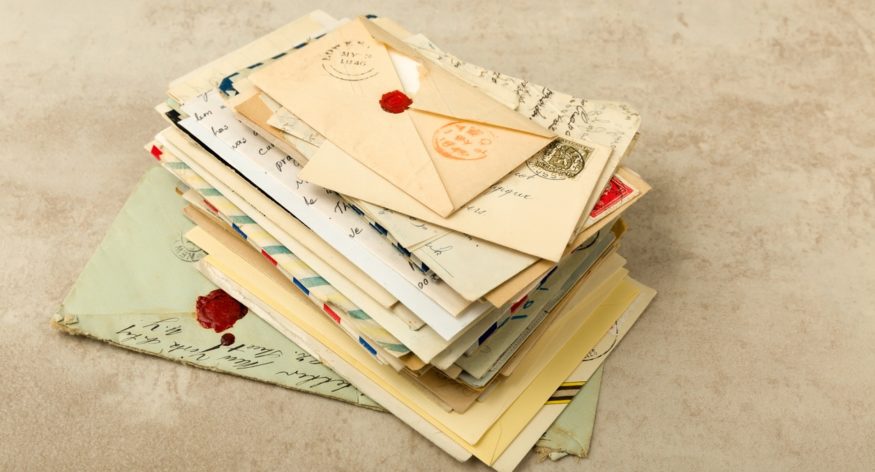

If you are fortunate enough to have a cache of old family letters, you are sitting on a gold mine. Letter writing has gone by the wayside since the invention of the telephone, e-mail, texting, Twitter, and Facebook, just to name a few ways of modern communication. Those old letters in your genealogy records collection should be preserved for future generations. Whether you have 100 letters or just one, they are important to your family history and add to your family story.
Some you may have in your collection could include war letters. These are not only important to your family history but to world history, especially if your ancestor wrote about the war in their letters. Love letters are a great resource for genealogy information and to learn how your ancestors met and fell in love. Some of my favorite letters are migration letters, those letters written by family members who migrated to different parts of the US or from one country to another. Preserving their experiences is essential to ensure the information is not lost.
Let’s Get Organized
First things first, let’s get organized. Many genealogists have piles of letters, shoe boxes full of letters or stacks of letters held together with a rubber band or ribbon. Getting these organized will help you manage your genealogy records, and during the process, you will probably find information that you never knew before.
–Arrange your letters in chronological order. This is a simple way to begin organizing your letters. Use the date on the letter or the date on the envelope postmark. Just be consistent, use one or the other.
–Do you have letters by multiple family members? Organize them first by surname, and then chronological order for each surname. This is a good choice for organizing if you worry about finding a certain person’s letters quickly and efficiently.
–If you have groups of letters for different events in your ancestors’ lives, perhaps organize them by event. For example, put all the World War II letters together, all the college letters together, etc. After you have grouped them, then organize by date.
–The most important part of organizing the letters is to find a system that works for you. Then be consistent in your methods throughout the process.
Unfold and Flatten
Once you have decided on an organization method, it’s time to do some preservation work. Maybe you have heard the word “preservation” and really didn’t know what it meant. It means “to take action to prevent deterioration or loss” according to the Society of American Archivist Glossary of Terms.
As an archivist, the number one question I am asked by genealogists when it comes to old family letters is: ”Do I leave the letter in the envelope or take it out?” My answer is always: Take the letters out of the envelopes.
Leaving letters folded and in their envelopes will do more damage as time goes by. The main reason is that people will frequently take them in and out of their envelopes to read them over and over which can cause damage. The folds in the letters, over time, will weaken the paper and will tear or rip. You don’t want that to happen, so here are some steps you can do at home to preserve your old family letters.
- Take each letter out of its envelope and unfold it so it is flat. CAUTION: Be careful that you do not mix up letters and envelopes. Keep each letter with its envelope. I suggest that as you remove and flatten each letter, use a plastic paper clip to hold the letter to its envelope. DO NOT USE METAL PAPER CLIPS Please do not use metal paper clips, in fact, NEVER use any metal on any of your documents. Metal paper clips will damage your documents by rusting and adhering to your documents. This can cause rust stains and perhaps tearing when you try to pry the clips from the paper.
- If your letters have been folded up and in their envelopes for a long time, they may not lay flat automatically. In this case, you will need to take steps to help them flatten. Lay the letter on a clean, dry surface that is away from sunlight where they can be left untouched for a period of time. Be sure to lay the envelope with the letter. While the envelope probably doesn’t need to be flattened, you don’t want to separate the letter from the envelope.
Encapsulate
Now that you have flattened your letters, you are ready to encapsulate them. The term encapsulate means “to enclose something or completely cover something.” The purpose of encapsulating your letters and envelopes is to completely protect them from damage while being handled. Ideally, don’t handle your letters much. Encapsulating them will also help keep dust and dirt from getting on them.
- You need to purchase archival document sleeves that are acid-free, lignin-free and have passed the P.A.T. (Photographic Activity Test) The material used in these sleeves can be mylar, polyester or polypropylene. The sleeves come in all sizes to accommodate different letter stationary. Be sure to get the size that fits your letters properly and leaves about one-quarter inch of space all around. You do not want to stuff letters in the sleeves or have too much room in the sleeves allowing the letters to move around. Do not skimp on this step; you must use proper sleeves.
- Make sure to place the envelope with the letter in the sleeve. Remember, you don’t want to separate them; keep letter and envelope together at all times. If your envelope still has the flap intact, make sure it is folded down on itself so it is not touching the letter. The glue strip still on the envelope flap may contain chemicals that could damage your letter if it comes in contact with the letter.
- When you have placed your letter and envelope together in the sleeve, you will see that immediately the sleeve will close around the document via static electricity. This is what keeps the sleeve closed to protect your letters, and not allow them to fall out.
Once the letters are encapsulated, put them in archival file folders and then into filing cabinets or you can place them in three-ring binders.
Family letters are a unique, one-of-a-kind one record collection. The information in them is priceless and should be preserved.
This is a guest post by archivist and professional genealogist Melissa Barker, the owner of Once Upon A Time Genealogy. She has over 26 years of genealogy research experience and six years’ experience in the archives/records management field.
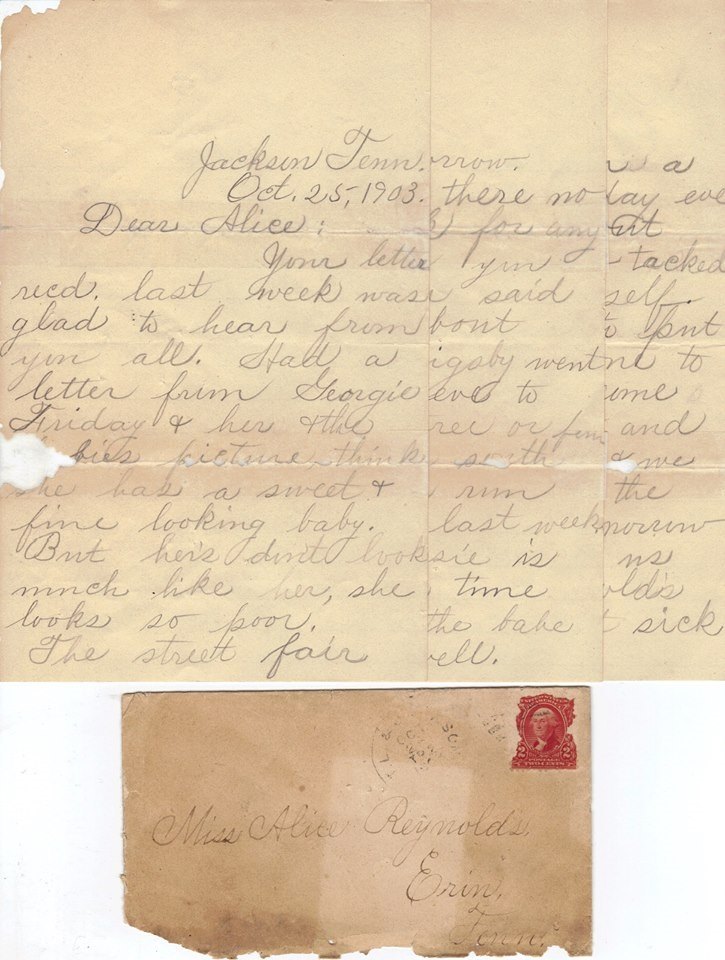

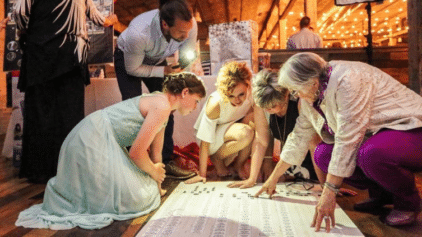
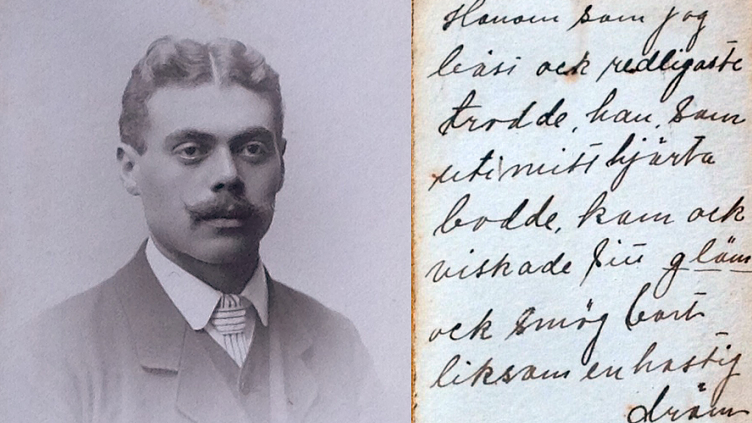
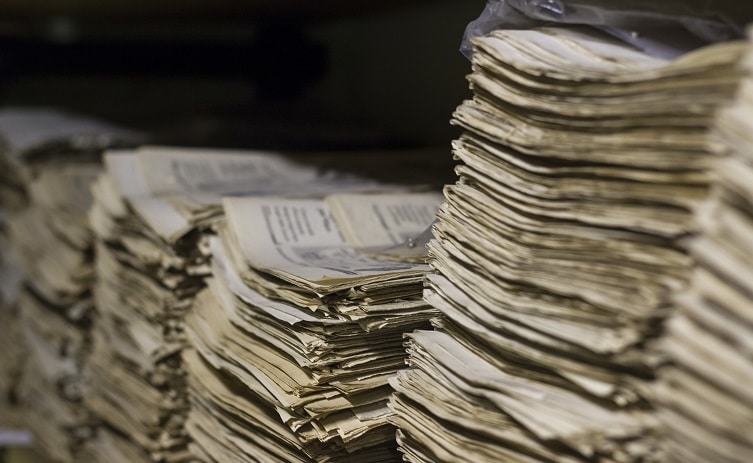


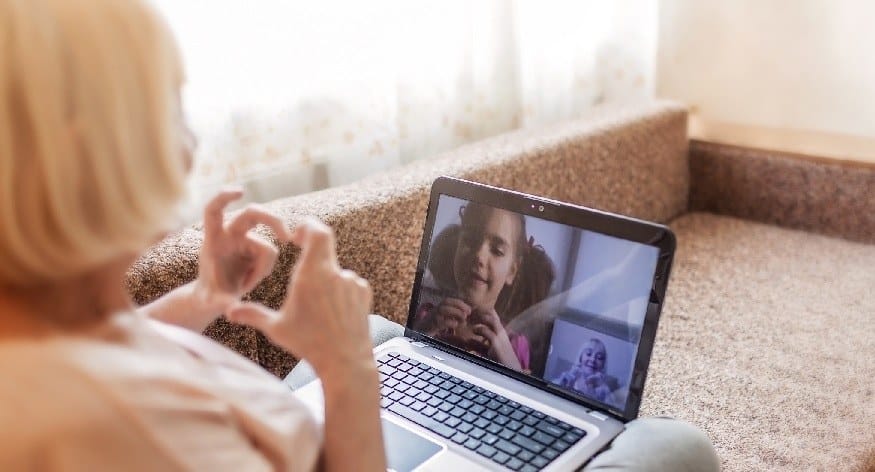
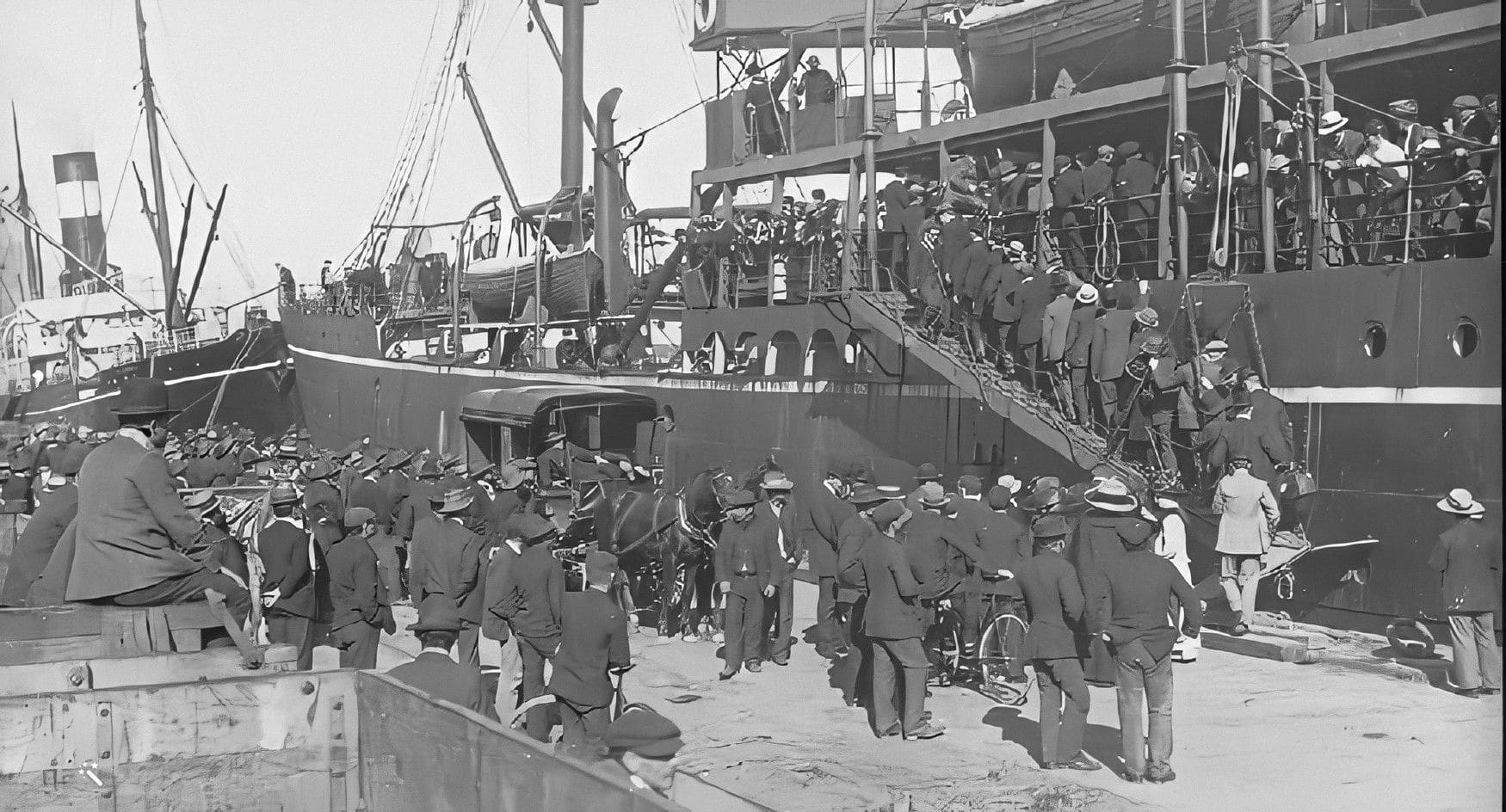
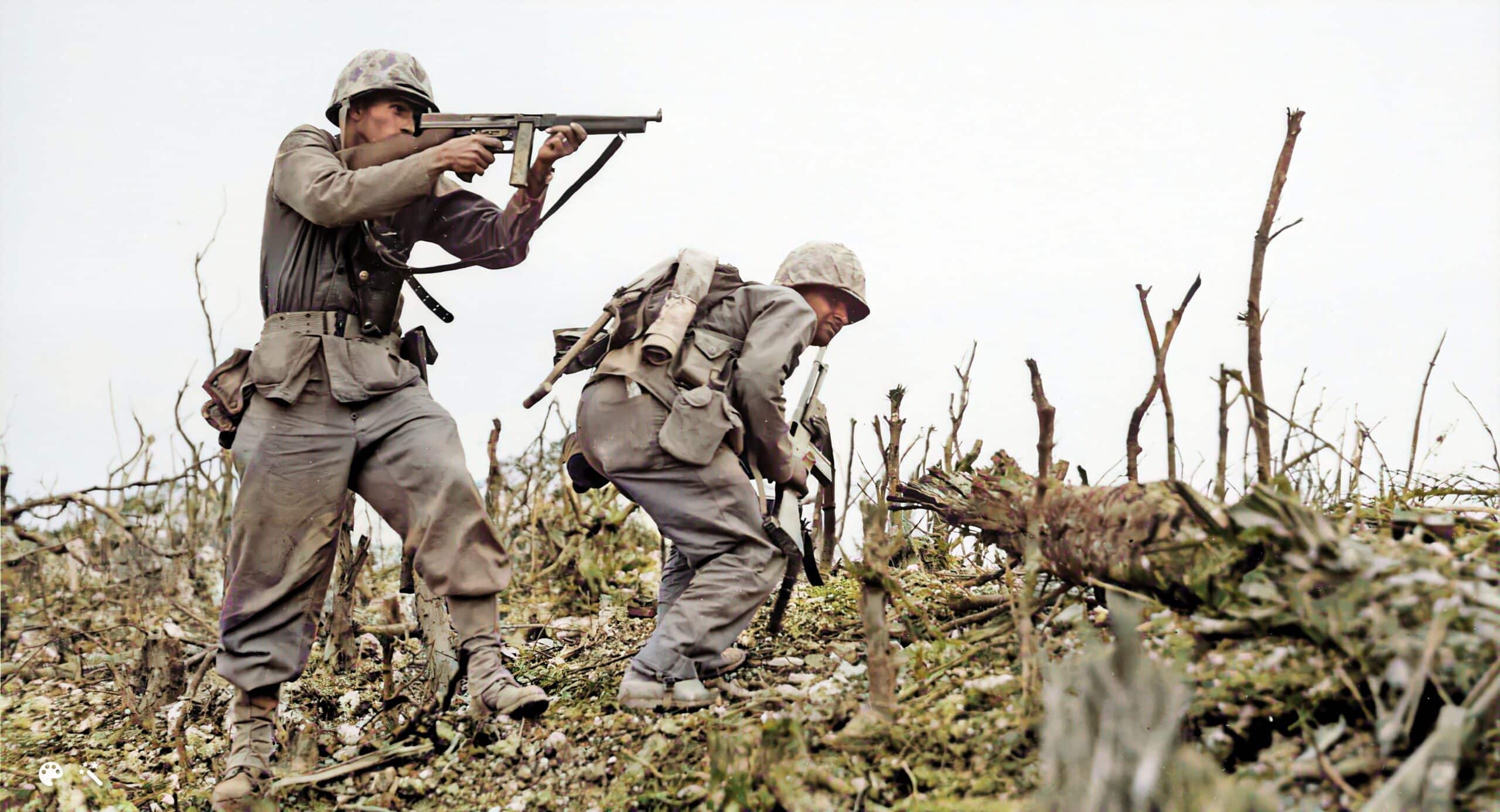
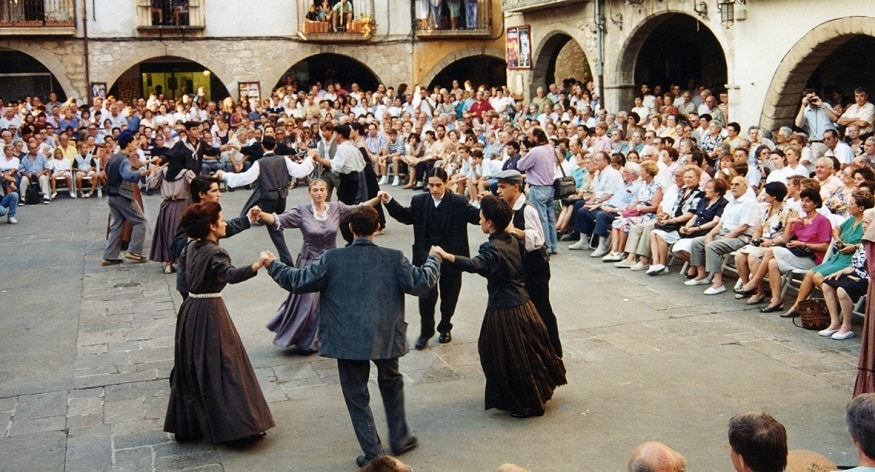
Roxie aka Roxanne Rodwell
March 14, 2019
I have letter from my grandfather whom I never knew. It is at least 100 years old by now.. I”m so glad that my mother saved it as well as her mother’s letter from her sister. I also have two little books that my father gave to my mother before they were married. The original leather covers are deteriorating and I don’t know what to do about that. They are inscribed by my father. I treasure them but I don’t know that my children will feel the same about them.
I appreciate your information concerning the preservation of these items.